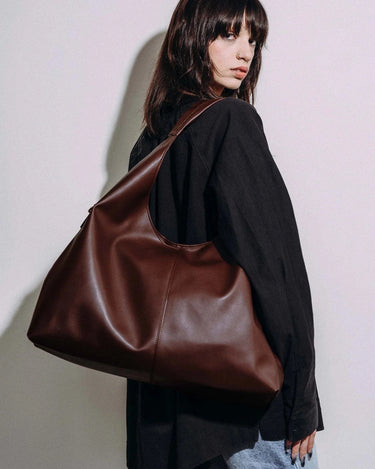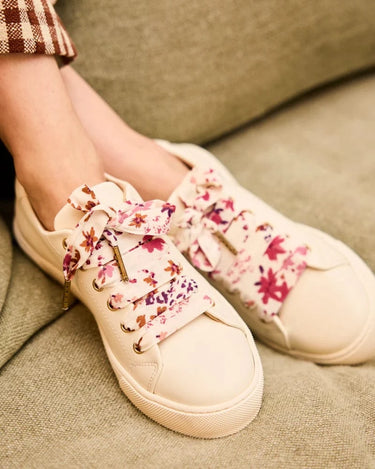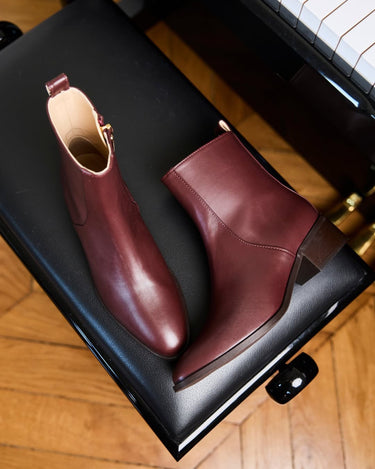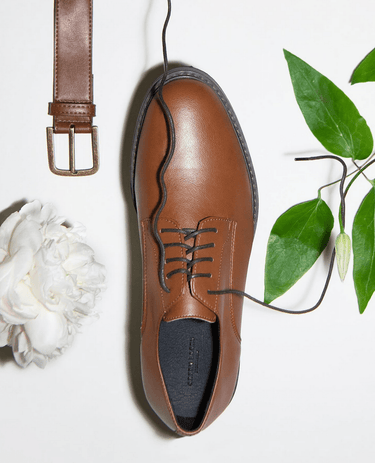Alert: We Now Have Leather Made From Olives
You might have been drizzling olive oil on your salads for decades, but did you know that those green little gems could be used for so much more? In fact, olive leather is the hottest new vegan leather on the block.
By Sascha Camilli: writer, speaker, activist, and vegan fashion expert.
What is olive leather?
The olive oil industry is huge across the world – so naturally it comes with waste. As material innovations experiments with different kinds of plant waste, it appears that olives are next in line to be fashioned into everything from bags to belts - and with good reason. Not only do plant-based leathers spare millions of animals from a miserable life on factory farms and a horrendous death at the abattoir, they are also much kinder to the environment than both animal skins and traditionally made faux leathers, which often derive from petroleum-based synthetics.
How is olive leather made?
Like many other plant leathers, this vegan leather is made from a waste product. In the case of olives, it's the pits that are made into a powder to create this dirt- and scratch-resistant, durable material. Some suppliers, like the ones used by accessory brand Estimon, work with olive oil production in Italy to collect the pits and create the textile.
Olive leather is also created in Turkey, by suppliers such as Oleatex, who creates leather from olive mill pomace – a waste product from the olive mill extraction process. This by-product doesn't have many applications aside from being used as fuel or fertiliser, which can involve unnecessary greenhouse-gas emissions. So when companies like Oleatex transform these waste substances into a fashion textile, they are making use of something that would otherwise have been discarded, as well as minimise demand for animal-derived leather or synthetic alternatives. One Immaculate brand now usng Oleatex for a large range of bags and backpacks is German brand Souleway.
Another brand that makes use of olive leather is Turkish label PREV. The brand's co-founder Osman Koçak told Immaculate Vegan: "We are following the material innovation in plant-based leather industry and attending fairs regularly. When we discovered Oleatex olive leather and learned that it is produced locally and sustainably in Turkey, we wanted to include this material in our R&D processes, which would also benefit the producers. After a lot of back and forth in the process, we arrived at the desired quality and durability for our own production. We now use this material in our outerwear line."
What attracted the brand to the Oleatex material was its sustainability credentials, including its high plant content: "This material is 100% biodegradable, and up to 70% plant-based," says Osman Koçak. The entire process, from raw material production to the final product, occurs within a compact 100 km radius. This localised production significantly minimises the carbon footprint."
In a time when plant waste is being more efficiently used to replace animal skins in fashion, leather as we know it is changing. But for our planet, and the millions of animals suffering in the trade each year, it can only be a good thing.
By Sascha Camilli
Cover image by Flor Saurina via Unsplash.
Love the look of Olive Leather? Then check out Olive Leather Bags, Shoes & Accessories collection.
Love sustainable vegan leathers? Take a look at our edits for Grape Leather, Cactus Leather, Apple Leather, Pinatex, MIRUM® and Cork Leather.
About Sascha
Sascha Camilli is a vegan writer, speaker and activist. Her book Vegan Style is out now on Murdoch Books. For more about Sascha, you can read our interview with her or sign up to her newsletter Kind of Wild.
For more great content like this in your inbox, sign up to our newsletter, and save 10% off your next purchase, plus great savings throughout the year.
Related Articles























































































































